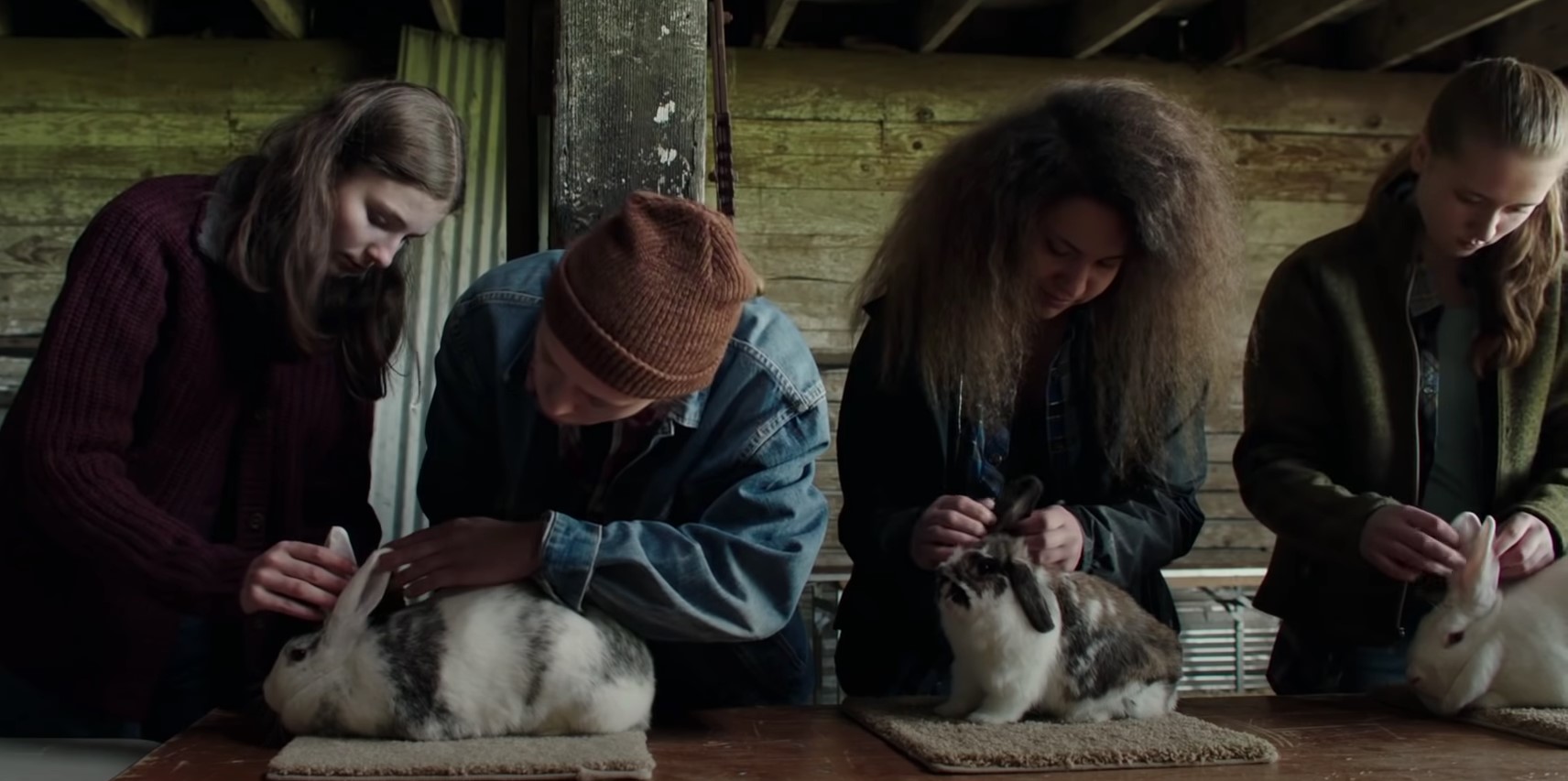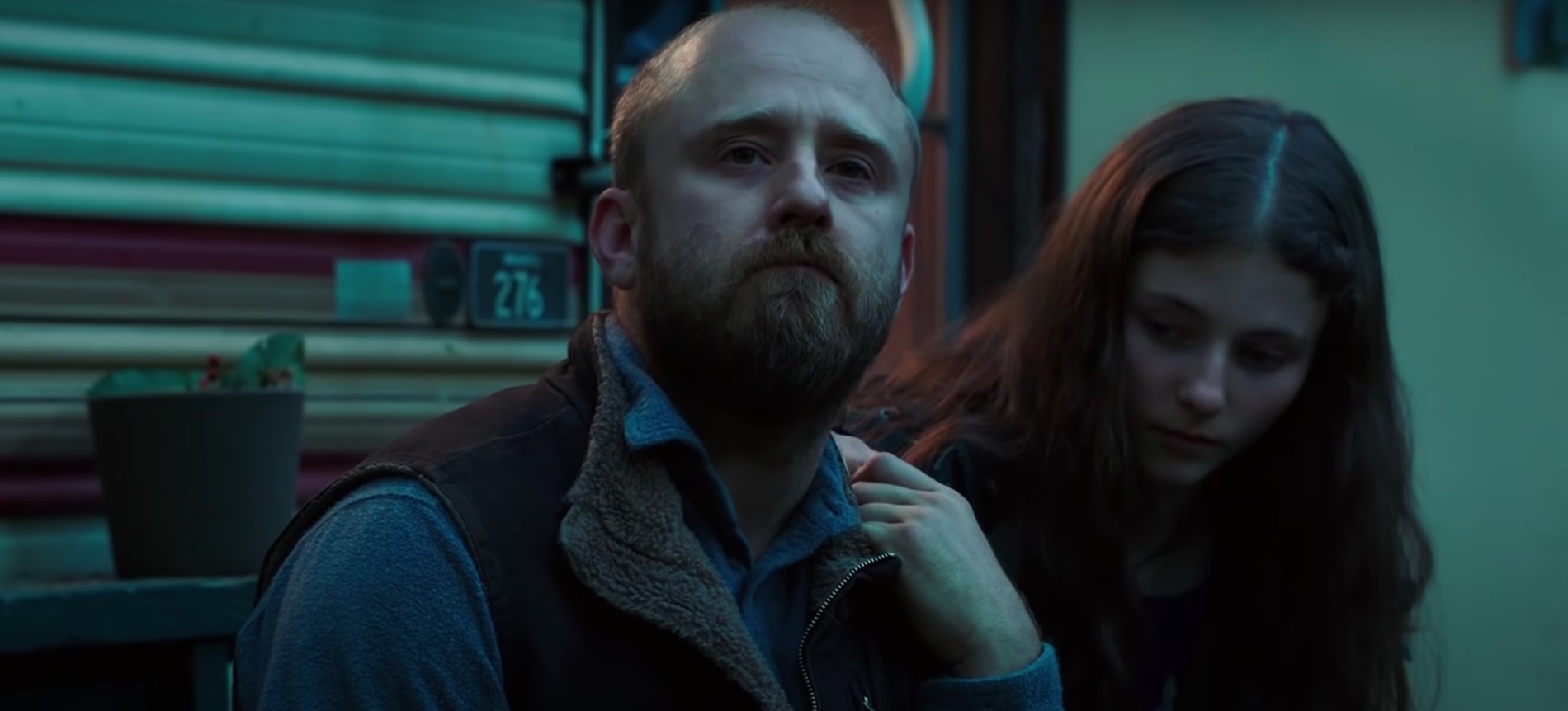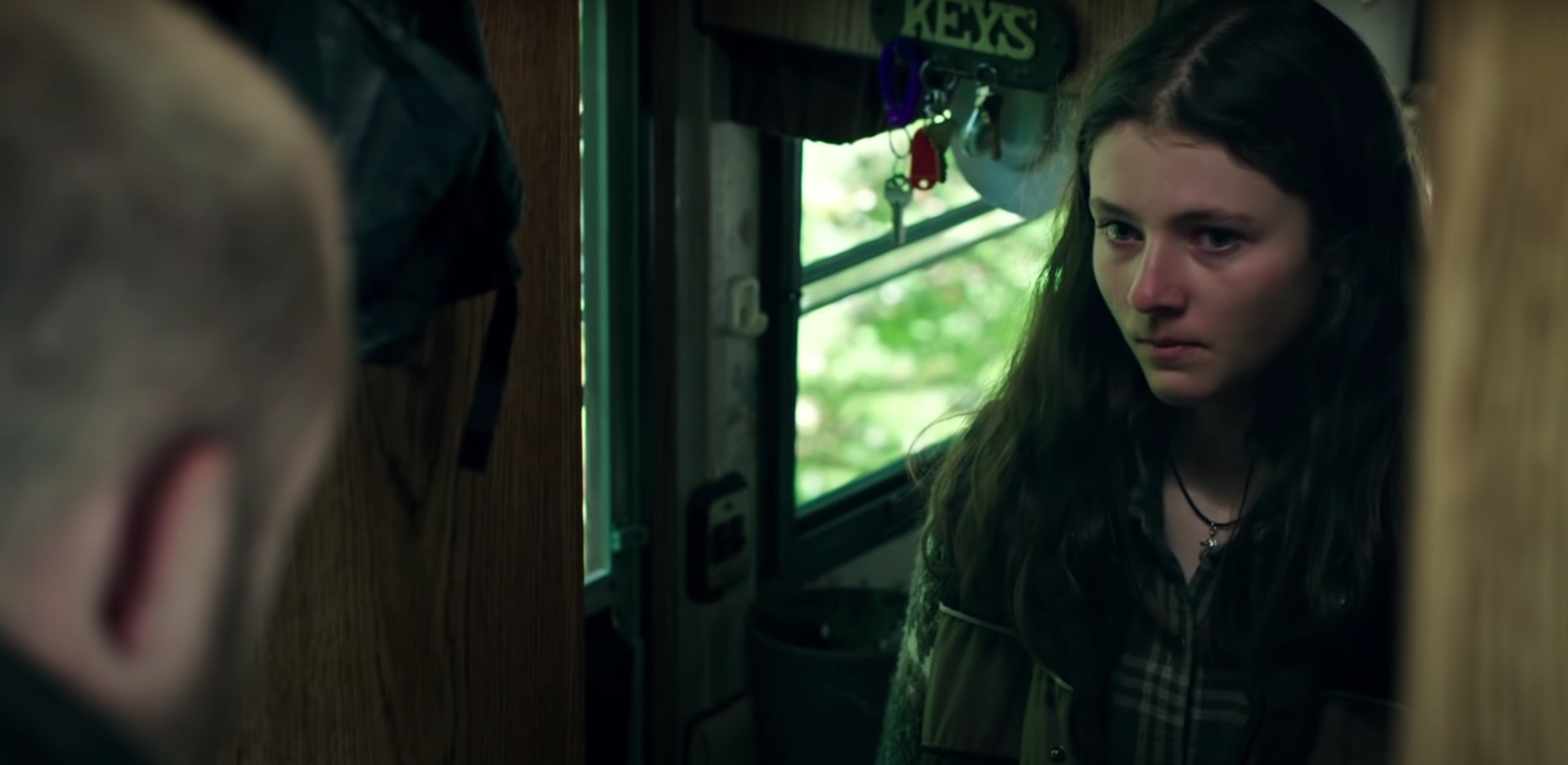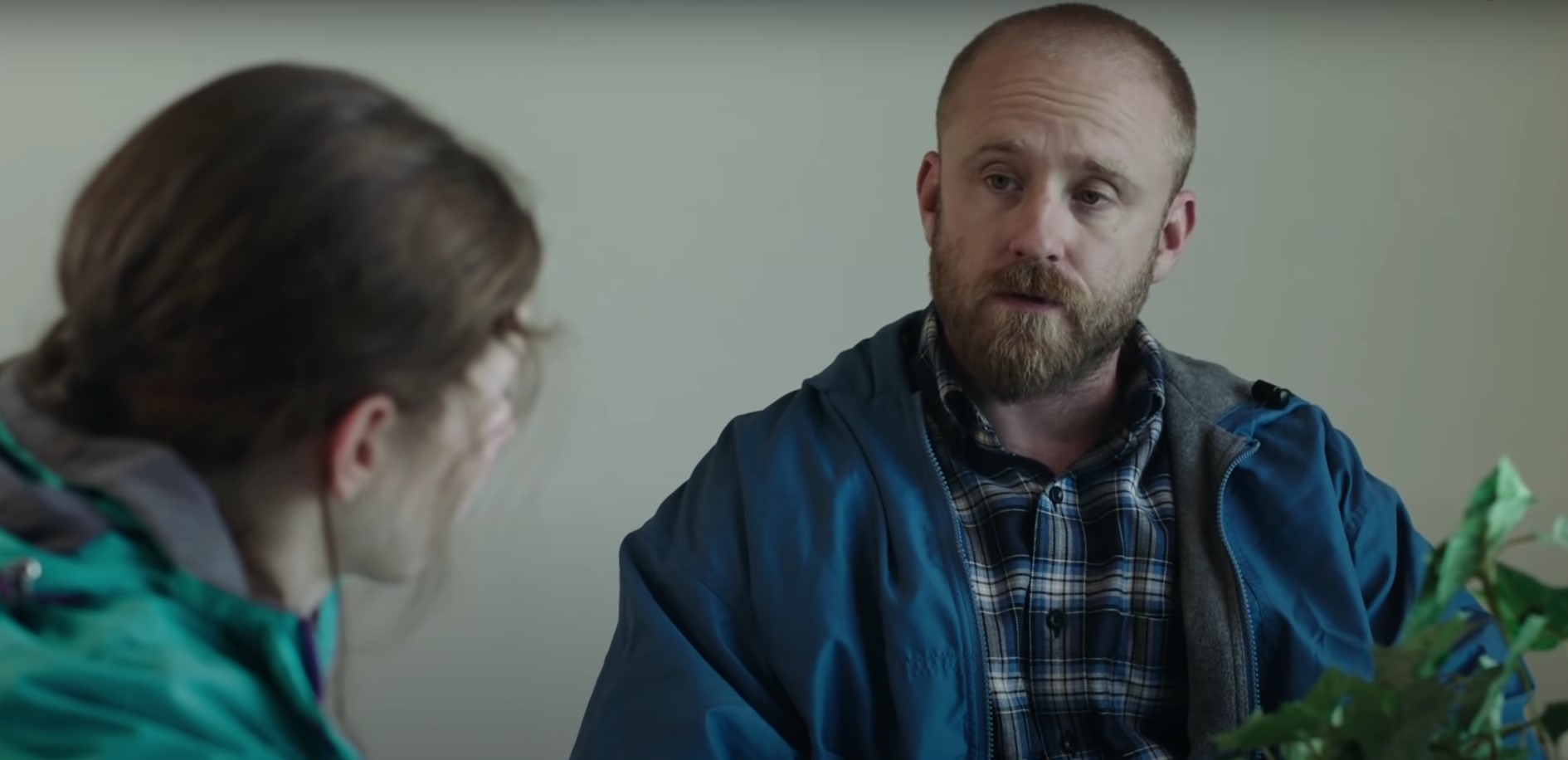Debra Granik is one of the most exciting filmmakers in the industry these days. In her first feature film, 2004’s ‘Down to the Bone,’ she delves deep into the mind of a woman stuck in a stale marriage and with a secret drug habit. In 2010’s ‘Winter’s Bone,’ Granik focuses on a young woman’s determined search for her drug-dealing father while trying to keep her younger siblings safe. The sharpness of these two films is missing from 2018’s ‘Leave No Trace,’ as the narrative in it is inherently optimistic.
However, Granik still successfully tells a story about the human condition, love, and perseverance. Due to its subject matter, ‘Leave No Trace’ unfolds like a documentary. It tells the story of an Iraq War veteran and his daughter. Their quiet life in the old-growth Forest Park near Portland, Oregon, ends abruptly when the authorities find them and attempt to reintroduce them back into the civilization. Here is everything you need to know about the ending of ‘Leave No Trace.’ SPOILERS AHEAD.
Leave No Trace Plot Synopsis
At the start of the film, Iraq War vet Will (Ben Foster) and his daughter Tom (Thomasin McKenzie) live out of a shelter they have built in Forest Park. It’s an entirely off-the-grid existence, complete with flint for starting fires and a total lack of any electronic device. Will and Tom sometimes visit the city for supplies and Will’s VA-issued benzodiazepines. Will sells the latter to other veterans living in Forest Park. Despite being a patient of PTSD, Will seems to have a strong hold on his condition, which doesn’t manifest in violent outbursts. It becomes increasingly clear that Will has found a way to deal with his PTSD, and it’s not with other drugs or alcohol.
One day, Tom is spotted by a jogger, who informs the authorities. The police, park officials, and social services come and take both father and daughter. Will and Tom are subsequently separated and interrogated. The authorities ask Tom whether she feels safe living with her father, to which she answers yes. Meanwhile, Will faces hundreds of questions posed by an AI and has no idea how to answer the increasingly personal questions.
Mr. Walters (Jeff Kober), the owner of a Christmas tree farm in rural Oregon, offers Will and Tom a place to stay at the farm in exchange for Will’s work there. The social services drop them off at the farm, and Will is told to expect more forms to fill up in the future if he wants to continue having custody of his daughter. At the farm, Tom meets a boy her age who helps her become part of the local 4H youth club.

However, Will rapidly becomes restless during their stay at the farm. One day, he tells his daughter it’s time for them to leave. Although Tom is reluctant, she follows her father. They return to their camp in the forest but discover that the authorities have destroyed it. Knowing the police are likely now looking for them, Will and Tom convince a trucker to give them a lift. They eventually arrive in Washington state and say goodbye to the trucker to go deep into the forest. However, the harsh environment of their new surroundings quickly proves to be hostile. They build a temporary shelter within the forest and stay there for the night. The following morning, they find what seems like a deserted cabin and decide to occupy it. At one point, Will leaves to get food but doesn’t return for hours. Becoming worried for her father, Tom goes looking for him and finds him lying injured and unconscious at the bottom of a ravine.
Local quad bikers help Tom and her father and take them to their mobile home community. Dale (Dale Dickey), the head of the community, allows them to stay there for as long as they want, and Tom slowly discovers that she perfectly fits there, even if her father doesn’t.
Leave No Trace Ending: Why Does Will Leave?
The title of ‘Leave No Trace’ represents an aspect of Will’s psyche, especially the part that compels him to live the life he does. His experience in Iraq seems to have drastically altered him, leaving him traumatized so severely that he has decided to walk away from human society and embrace a quieter and simpler life in the forest. Anything that surrounds Will when he is living among people can be potentially triggering. When he and Tom are at the farm, he is affected by the sound of the helicopter used to transport the trees. It is these apparently small things that pile up and make traditional living unbearable for someone like Will.

The film doesn’t particularly seek to put the alternate lifestyle on a pedestal. It simply enunciates that these people exist. They have willingly stepped away from the hecticness and the rules of modern life. While, for many, it may be due to financial reasons, that is clearly not the case with Will. Even when he is provided with housing, he prefers the forest, the camp, and a meager living.
Will’s PTSD has evidently played a crucial role in shaping his current worldview. But his lifestyle is not just a way to deal with his trauma, it’s also a space in his mind where he is most comfortable. As humans, it’s almost an inherent tendency for us to equate luxury with comfort. But for someone like Will, the barest minimum he needs for his survival is enough to provide him with all the comfort he needs. And that doesn’t change by the film’s end, so he leaves the mobile home community and his daughter behind to return to nature.
Why Doesn’t Tom Go with Will?
One of the most impactful lines comes after Tom learns that her father wants to go back to the forest again. She has come to love her life in the mobile home community and isn’t willing to give it up. She tells her father, “Same thing that’s wrong with you isn’t wrong with me.” It’s a harsh thing to say, bordering on unkindness, but it also underscores how their relationship and Tom have changed. She doesn’t have the experiences of her father, so it’s unfair to expect her to bear the impact of the trauma associated with them.

A part of Will must have known that this was inevitable. The film is based on author Peter Rock’s 2009 novel ‘My Abandonment,’ which is inspired by a true story about which the Oregon-based author read in a local newspaper. While developing the characters for the film, Granik spoke to a father and a daughter who practiced an alternate lifestyle. Granik told Deadline that she incorporated into Will the father’s desire of giving his daughter a chapter in her life where the woods would be her playground. If that’s the case, Will has always known that a day will come when life in the forest will not be enough for Tom. As the film ends, he accepts this, just as Tom accepts her father’s decision to leave. However, despite the separation, Tom still maintains a connection with her father by leaving food for him in the forest.


You must be logged in to post a comment.